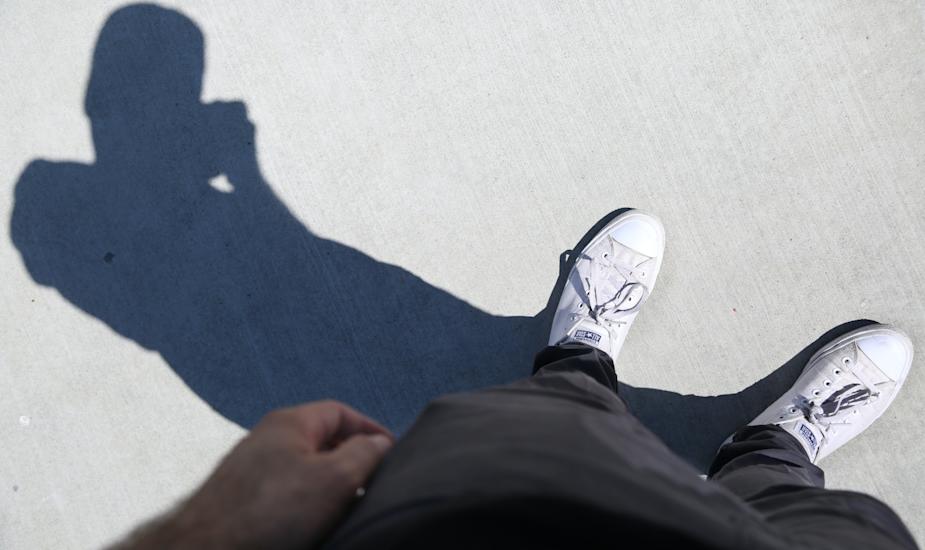How to protect yourself from identity theft
3 minute read

"Why would hackers be spying on me and stealing my data right now? They don't even know me, after all, I'm not an important person." Many users think this way, forgetting that everyone has sensitive personal data that fraudsters can use to cause a lot of damage.
Only spectacular cyber attacks on corporations or celebrities often make it into the press.
Many cybercriminals avoid the best-secured data of large organizations and prefer to look for vulnerable and poorly secured data of private individuals. And they are finding it.
Hackers often pick easy targets that they can successfully attack without much effort. Unsuspecting private individuals are now the majority of targets, and cybercriminals are globally organized and increasingly operate professionally. In Germany alone, the number of reported cybercrimes in 2022 was 108,474 - the number of unreported cases is probably much higher.
What many people do not know: The most popular merchandise in the so-called "underground economy" are digital identities of all kinds, for example account or credit card data, passwords, etc.
Because stolen digital identities are often the starting point for further crimes, and even seemingly unimportant personal data can be used to do many things: spread false information, buy products, commit credit and authority fraud, send blackmail emails, spy on relatives and friends, and much more.
Whether only a financial loss is inflicted or the entire reputation is damaged - it often costs several thousand euros and it can sometimes take months until the nightmare is over for the victim.
Preventing digital fraud and data abuse
The threat posed by cyberattacks remains at a high level and the intensity of recorded attacks is steadily increasing.
Therefore, protect your name and your money with some simple measures and make life more difficult for cyber criminals. Often, a single roadblock is enough to make fraudsters look for other easier targets - the more comprehensive your safeguards, the better.
These 5 measures have proven effective in protecting yourself from identity thieves:
1. Use a password manager
On average, every user has 50 to 70 different passwords - but many people use the same passwords for multiple accounts.
That's a mistake!
Cybercriminals can directly access multiple accounts with a single successful hack here. For this reason, use a password manager. With it, you can create secure and hard-to-decrypt passwords for each account. A password manager encrypts passwords and stores them in a secure virtual vault. Only the master password must be remembered and not stored on the device.
As a general rule, create unique passwords and do not use common sequences of numbers or letters. References to your or relatives' dates of birth are also strictly taboo.
Never use previously used logins from one website or social media to log in to other websites or create an account.
If you don't use a password manager, then change passwords at regular intervals.
2. Use multi-factor authentication
Many users still shy away from multi-factor authentication because they think it is a hassle.
Usually, after entering a username and password, you have to enter an additional code that is sent to you via text message. Take advantage of this very effective extra layer of security with any account that allows this option - there are now many useful apps that make multi-factor authentication a no-brainer.
3. Only necessary sharing of personal data online
Online storage is convenient and usually very secure. However, only if you do not share your data with the whole world. Always think carefully about who should have access to what data.
Nothing makes you an easier target for identity thieves than a large amount of voluntarily disclosed personal information.
Delete personal data - such as date and place of birth, mother's maiden name, address, phone number, pet's name, hobbies, etc. from social networks.
Always use the strictest privacy settings and choose your "friends" with a lot of care, especially in case of unknown or duplicate friend requests.
Even if it's hard: resist quizzes or games on social media, because they usually only serve to collect personal data - often they advertise unrealistic prizes or do you know someone who has already won 20,000 Bitcoin?
Disable location detection and live location sharing, because criminals know so quickly where you are and exploit that.
4. Protect your data at home as well.
Home networks are often a major security risk because many users are careless when setting them up, feeling protected within their own four walls. While that may be true for real life when the apartment or front door is locked, it's not true online.
Always secure a wireless home network to the best of your ability by using strong passwords and set it to invisible. Only use IoT devices where you can change the password and manage security settings easily. Disable IoT devices if you are not going to use them for an extended period of time.
Dispose of old phones, laptops, and storage devices properly and never through household waste.
5. Protect your privacy in public.
Never use public wi-fi access in squares, trains, cafes or hotels for your online banking, shopping or medical and health-related services. Do not enter private information such as credit card numbers, date of birth, social security number or any membership numbers over a public network. I
On a public network, it is often very easy for cybercriminals to steal someone else's data.